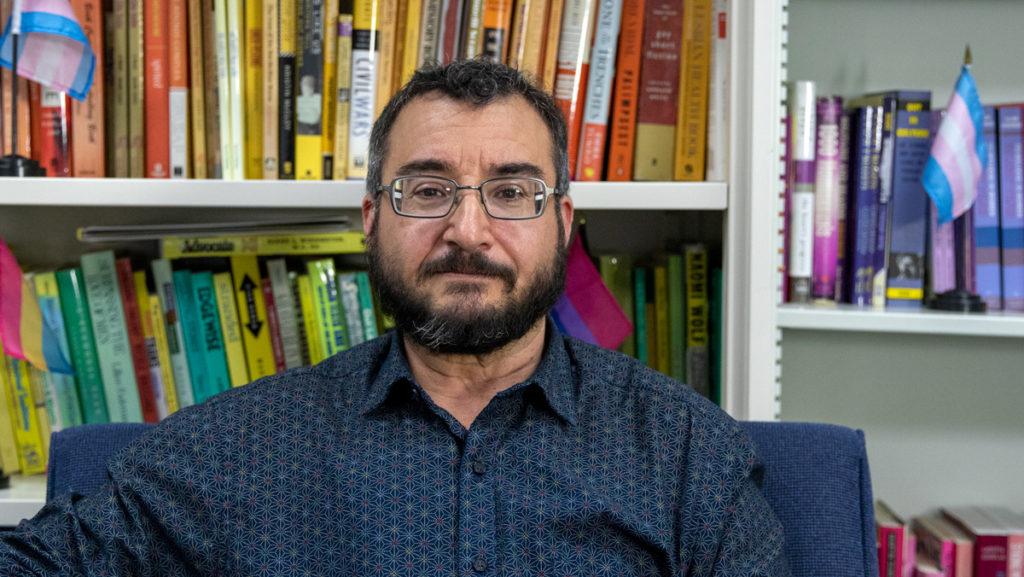For many people in my personal and professional life, the last few weeks have taken on a new layer of distress and fear on top of other already well-established distresses and fears. So many in our communities have been under attack. Targeted. Impacted by policies that take aim at our very existence. Our race and ethnicity, immigration and citizenship status, religion, sexual orientation, gender identity and more. The impacts on our lives range from numbness to hypervigilance, from sleeplessness to panics, impacts that can make each day more challenging than the next.
I write this against the backdrop of the cruelty aimed directly at transgender and nonbinary people in these last few weeks. A proposed federal policy redefining transgender people out of existence by stating that gender is unchangeable and determined only by one’s genitals at birth, with genetic testing if an individual disagrees, and the Department of Justice’s argument that it is legal to discriminate against transgender employees, are the most recent illustrations. To the many people that have contacted me to ask how they can help transgender and nonbinary people, I wanted to share some simple ways people can support us.
Sometimes it’s the small, consistent things that are important. Reach out. Check in, text, or call. Say something simple like, “Hey. I see the world is on fire in ways that hurt trans people. Just wanted to say I’m here and I’d love to get tea, go on a walk, or watch a movie sometime.”
Talk to other cisgender people. Share these ideas with them. When cisgender people don’t understand why these have been such hard weeks, explain why.
Use your privilege by speaking out against misinformation and discrimination. Provide support by accompanying trans people to bathrooms when their safety may be at risk (learn more at illgowithyou.org). Or, if a friend is going through the steps of gender marker change or name change on the many documents needed, ask if they’d like for you to go with them to the courthouse, DMV, or county clerk.
Discover transgender and nonbinary artists, writers and actors. Support their work, and tell others.
Donate your time. Many organizations have roles for volunteers. Lend your voice to advocate. The National Center for Transgender Equality Action Centers has information for taking action.
Engage with elected officials. Become an elected official. Some started out while in college — think Mayor Svante Myrick. Speak up, knowing that sometimes it may not be within your power to change a biased person’s mind but rather to be a voice that speaks up so others hear you.
Think about what talents or skills you have to give. Great at reading instructions and filling out forms? Help someone with the paperwork to change their name or gender on an identity document. Enjoy talking on the phone? Offer to help make an appointment or follow-up call. Have some extra time or reliable transportation? Pick up groceries or do laundry. The person you’re helping can use that time for other responsibilities or self-care.
Alongside all these dos, there are some don’ts. Don’t send articles or links and say, “Oh, thought you’d want to see this. Isn’t this terrible?”
Rather than sending that link about the latest bad news, get the support you need from other cisgender people to process your questions and fears. Then support the transgender and non-binary people directly affected.
And to our transgender, nonbinary and intersex community: You are valid. You are valued. You are loved. You are worthy of dignity and respect. You belong in our classrooms, residence halls, student organizations, sports teams and performance spaces. You belong on our campus as you live, learn, love, study, work, and worship.
Trans, nonbinary and intersex folks exist. We have always existed. Racism, colonialism, misogyny, and classism conspire to reinforce powerful structures of oppression. The connections we weave are stronger.
Think, center the person impacted, take care of yourself so you can be available if needed, and consciously and thoughtfully reach out and act. A lot of folks are hurting these days. I see them in my office. They message and call. They stop me as I walk across campus. We are in this side by side.














